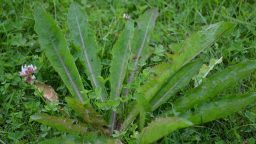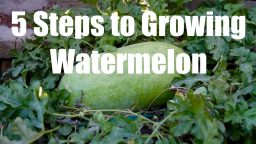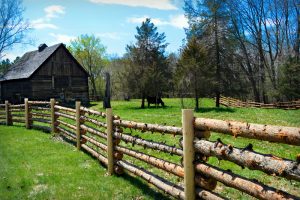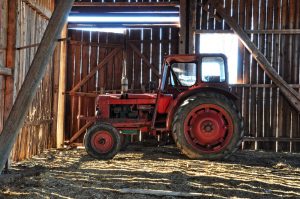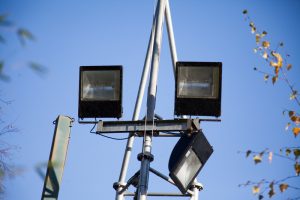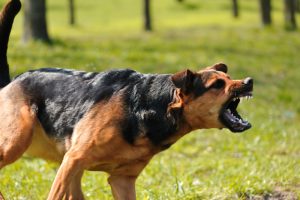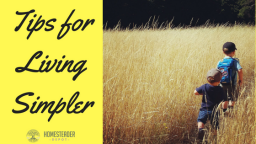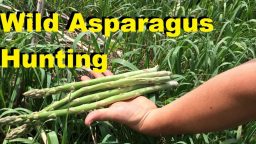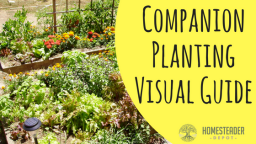Homesteading is more than just what you do with your land or in your home, it’s a way of life. And with that culture comes a certain set of skills that every homesteader should learn to master.
Modern humans have forgotten so many of the specialized skills our ancestors relied upon for daily life. But the entire spirit of homesteading is to regain this knowledge, this autonomy, by doing it ourselves.
Here are some of the most important homesteading skills that everyone should master, whether you’re living on a 10-acre farm or a studio apartment-turned-urban homestead.
Gardening/Regional Gardening
Growing your own is ground zero for modern homesteading, and wherever you live, there’s bound to be at least something edible you can grow. Learn what grows best in your climate and what you can cultivate that will thrive. Learn how to shop local, as well!
Composting
Trash is nearly always treasure to any modern homesteader! If you aren’t composting, you’re most likely throwing away valuable biodegradable material that can lend itself to the healthy production of fresh fruits and veggies. Learning the finer points of building, feeding, turning, and using homemade organic compost is one of the most valuable skills you can gain.
Canning
Canning is one of those few traditional forms of food preservation that, despite the increased availability of comparable food products at the supermarket, many people still choose to do it on their own! Canning your own food is essential to the homesteader, so you can preserve and store your excess harvest through the winter and on to the next year. Basic canning knowledge and equipment are a must for any homesteader, and it’s also something that anyone can do, no matter where they live! Make the most of the fresh produce at the farmer’s market over the spring and summer, and can extra for the winter so you can eat local all year long.
Basic canning knowledge and equipment are a must for any homesteader, and it’s also something that anyone can do, no matter where they live! Make the most of the fresh produce at the farmer’s market over the spring and summer, and can extra for the winter so you can eat local all year long.
Baking
Breadmaking is one of the most ancient artisan skills, and archaeologists regard its discovery as a major turning point in the development of human civilization.
This is another great homesteading skill that anyone can do, no matter where they live, and it’s a great way to have more control over your food, and your health.
Healthy, homemade breads, especially those that are naturally fermented, are free of the many harmful preservatives and additives found in your average supermarket loaf.
Butchering Animals
If you’re going to raise animals, you will probably want to learn how to slaughter and butcher them! Of course, there are probably local butchers you can take your animals too, but you’ll probably want to get familiar with the process, just in case.
A simple way to learn is to simply buy a whole chicken and learn how to butcher it. This can save money, and is a vital skill.
Herbology
You don’t have to have a fancy degree or study with some kind of shaman to learn how to use herbs. There are a lot of basic bits of knowledge you can aquire with a bit of research, such as using lavender to help with sleep or peppermint to sooth an upset stomach. Herbs grow all around us, and have so many wonderful applications in natural health!
A great way to learn is to grow a few basic herbs yourself, and find ways to use them. Peppermint, rosemary, and basil are great to start with, and all have many wonderful applications for health and wellness. You can learn to make tinctures, soothing balms, healing teas, infused oils, etc. There are so many ways to use herbs, and the more you learn to use them yourself, the more your interest will be piqued!
How to Ride a Horse
This will naturally not be as easy for everyone to learn how to do, but if you have the resources to do so, take advantage.
Horses are some of mankind’s oldest companions, and for good reason! They are vastly useful to us and will outlast our modern transportation and farming vehicles. Learning to ride them, as well as care for them, can be vital in this day and age, not to mention, incredibly fun and rewarding!
Wild Edible Identification
This is something anyone can definitely learn how to do. Find a guide for wild edible plants in your area, and gain some experience in identifying and foraging for these.
You never know when this information might be vital for you. You might also be able to find some wild herbs to use for natural remedies! Local plant life can be a goldmine, you just need to know where to look.
Firearm Use and Maintenance
Back in the day, firearms were essential for survival for many of our country’s early settlers. For hunting, slaughtering animals, and defending the homestead, knowing how to both use, and take care of, a firearm, is crucial. Anywhere you live, a firearm can be a vital tool for defense and survival.
How to Hunt and Fish
This is something else you can learn no matter where you live! No matter how much you can raise on your own homestead, it’s always important to also know how to hunt and fish. For both supplementing your local food supply, as well as potentially surviving one day, these skills are vital.
Take back some of the skills we’ve lost over time through modernization, and invest your energy into long-lasting knowledge and skills that will help you become a better homesteader and more self-sufficient human being.
